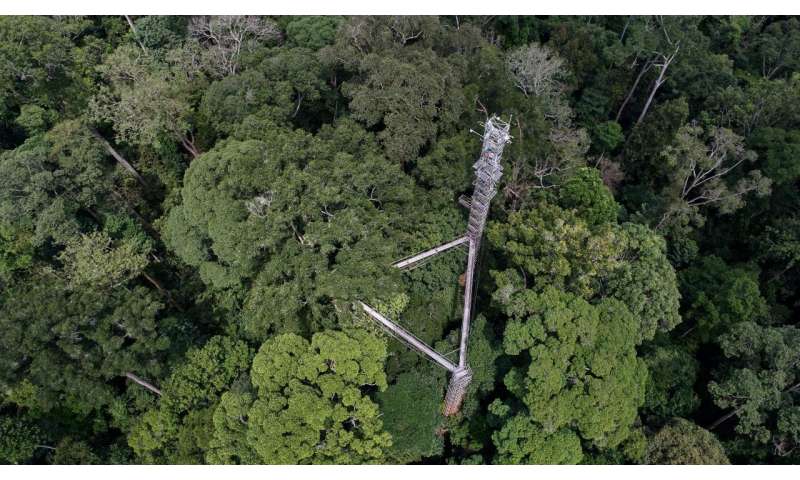Researchers find global plant water use efficiency stalled due to climate change

As climate change causes levels of carbon dioxide in the atmosphere to rapidly rise, scientists have widely believed that the increase might play a role in helping to improve the way plants consume water, known as water use efficiency (WUE). The thought was that higher levels of WUE meant plants were consuming less water but absorbing more atmospheric carbon, increasing growth and helping to lessen the impact of climate change.
However, new findings from researchers at the University of New Hampshire have found that water use efficiency has stalled since 2001 which implies not as much CO2 was being taken in by plants and more water was consumed and that could have implications on carbon cycling, agricultural production and water resources.
"We observed an overall significant increase in water use efficiency throughout 1982 to 2016, with a substantial rise from 1982 to 2000, but after that water use efficiency seems to have stalled," said Jingfeng Xiao, research professor in UNH's Earth Systems Research Center.
"An increase in CO2 allows green plants to grow faster and use water more efficiently but this study shows that some of the nature-based methods that scientists thought might be in place to help achieve carbon neutrality may be undermined by the adverse effects of climate warming and that plants are not using water as efficiently as scientists might have expected."
The multi-faceted dynamics involved in the complex trade-off between carbon gain and water loss in rising temperatures and increasing atmospheric CO2 has been poorly understood. In their study, recently published in Science, researchers used satellite and micrometeorological FLUXNET data and machine learning/AI to develop 24 models for five major vegetation types—forests, shrublands, savannas, grasslands and croplands.
They looked at potential influences and limitations in each ecosystem on CO2 uptake and found the satellite-driven models indicated a weakening response in plant growth and a sustained increase in plant water use since 2001 possibly due to rising vapor pressure deficit (VPD), the amount of water actually in the air versus the amount of water vapor the air could hold.
As VPD increases, it potentially slows or suppresses photosynthesis and enhances plant water consumption, weakening plant growth and decreasing water use efficiency in global ecosystems.
Researchers say that this trend may indicate that rising temperatures, related to climate change, and projected increases in VPD could impact future global land carbon levels, which are mostly stored in forests and other ecosystems, and can affect water cycles and plant growth. They note that a number of factors were taken into consideration and the saturation of WUE did not appear to be the result of changes in vegetation regrowth, land cover or nutrient constraints on photosynthesis like too much or too little nitrogen or phosphorus.
More information:
Fei Li et al, Global water use efficiency saturation due to increased vapor pressure deficit, Science (2023). DOI: 10.1126/science.adf5041
Provided by University of New Hampshire